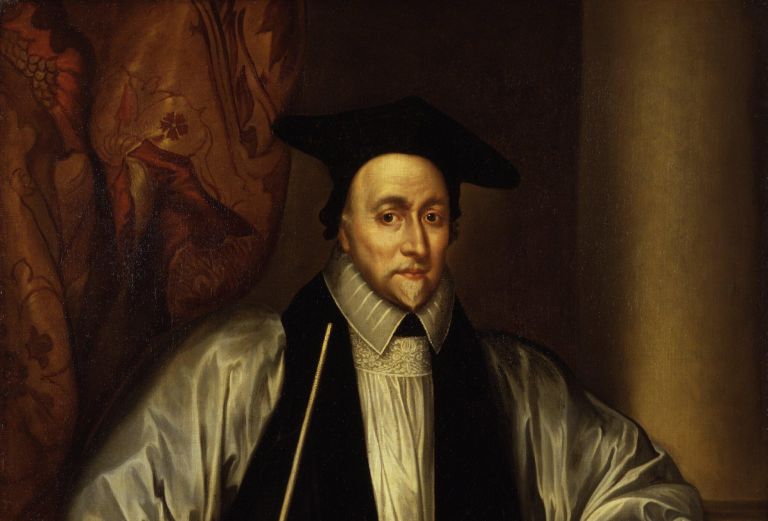
Written by Valentine’s Day enthusiast, community archaeologist Alexis Haslam.
A friend of mine once booked a table at a restaurant on Valentine’s Day for himself and his girlfriend. He turned up at her doorstep with a bunch of flowers, feeling enthusiastically romantic about the surprise he’d laid on for her. When she answered the door, she told him that she was sorry, but she was going out with her mates instead. Then he did what he has referred to as the most embarrassing thing he has ever done in his life – he pretended to cry. Despite his best efforts at striking the sympathy vote it made no difference – she decided she was going to have more fun on a girl’s night out so off she went, leaving my poor mate on his own and his romantic plan in tatters. Needless to say, the relationship didn’t last long but that story has always made me chuckle, whilst also making me very dubious about a day defined as celebration of love and romance.
My cynicism of the date probably wasn’t assisted by my mum making me write a Valentine’s Day card to every girl in my class when I was 6 years old. I thought it was akin to some kind of Christmas event until I was informed otherwise by my classmates who also stated that the cards were meant to be anonymous. Thanks mum! Another one to put on the childhood trauma list… So, I’m hardly the most obvious person amongst the Fulham Palace team that you’d approach to write something about a date I personally don’t have much time for and that brings back haunting memories. Still, here we are – where I’ve been asked to produce something. I have for you all a story worthy of a Shakespearian tragedy. So, it isn’t exactly positive, but it does reflect the fact that Palace has, like all family homes, been witness to events both humorous and sad, loving and disappointing and both wonderful and awful. I’m definitely focusing on the awful here, in case you were wondering. Really awful. Terribly awful.
Our story begins at the outbreak of the Civil War, when King Charles I raised his standard at Nottingham in August of 1642. At the time William Juxon was the Bishop of London and was very close to Charles. He even stood with the King on the scaffold and offered him spiritual support during his execution in January 1649. Seemingly admired by both sides as an honest individual, Juxon remained at Fulham throughout the war and was not removed from the estate. He continued to live there even after the Parliamentarians had banned the episcopacy in 1646. Desperate for cash, the victors seized episcopal lands and often sold them off for a heavily discounted price. Fulham Palace wasn’t even spared, and was finally sold in 1647, with an individual named Edmund Harvey purchasing the manor for a grand total of £7,717 8-shilling 10-pence (or 1211 horses if you prefer that comparison…). Today that price would be equivalent to £798,887.95.
Harvey had been a Colonel in the Parliamentarian London Regiment of Horse under whom an individual named John Juxon had also served as a Captain. John was the son of Bishop Juxon’s cousin, which provides a perfect example of how the Civil War divided families. At the same time, it is clear that the machinations of wealth, power and land were at play here. John Juxon died from wounds sustained at the Battle of Newbury, but it is almost certain that Colonel Harvey would have been well aware of Fulham Palace prior to his purchase of the estate. A firm Parliamentarian, he entertained Oliver Cromwell at the Palace not long after he bought it! I’m sure that was a riot of a party. Still, sadly for Harvey, he eventually fell out with the Lord Protector and was briefly placed in the Tower of London, accused of misappropriating army funds. He remained a popular figure in Fulham however, and the Palace is bound to have functioned as a wonderful and spacious family home. After all, he had at least three children with his first wife, Elizabeth Gott, and another ten children with his second wife Judith Langham (whose sister was married to Captain John Juxon).
Things only got worse for the Harvey family following the Restoration and the Coronation of King Charles II in 1661. With the return of the King came the return of the Bishops and Colonel Harvey was duly tried for Regicide (a person who kills or takes part in killing a king). He was saved from execution by the fact that he had not signed Charles I’s death warrant and he was instead imprisoned at Pendennis Castle in Cornwall where he passed away in June 1673. Gilbert Sheldon was made Bishop of London in October 1660 and the Act of Indemnity and Oblivion passed in June of that year meant that Royal and Church lands were to be returned to their original owners. At the time Fulham Palace was being resided in by Colonel Harvey’s son Samuel and his wife Cecilia. They had married in 1658 and Cecilia was daughter of the eminent lawyer Bulstrode Whitelocke, whom Bishop Juxon had previously gone hunting with whilst they were at Oxford together.

The legal requirement to return the manor effectively meant that the Harvey’s were to lose everything. At the time Cecilia was pregnant and her father tried to use his friendship with the Lord Chancellor, Edward Hyde, to gain some leverage. In November of 1660 Bulstrode and Samuel met with Bishop Sheldon and asked him if they could remain at Fulham until Cecilia gave birth. This seemed to be accepted by the Bishop, but on the 23 December, he sent officers and soldiers to take possession of the Palace. Hardly a message of peace and goodwill. Samuel was away at the time, but the soldiers looted the place, stealing the Harvey’s belongings and hanging around for four days causing chaos. Cecilia fled to the home of a family friend, but the incident appears to have sent Samuel into a spiral of depression.
On 4 January he was reported in Bulstrode’s diary as ‘dangerously sicke’ and just four days later the diary entry read as follows:
‘About 6 a clocke in the morning, Whitelocke’s son Harvey dyed, his heart being broken with griefe for the barbarous usage of himself & his wife by the Bishop of London & his Agents, & for the losse of his whole Estate, a great part of it unjustly taken from him & contrary to the Act of General pardon.
‘He would often express his griefe, that he had nothing left for his wife whom he entirely loved, & for his child & that he had brought his wife into so sad a condition’
The circumstances of Samuel’s death are vague, but reading between the lines it seems entirely possible that he felt compelled to take his own life. Cecilia moved in with Bulstrode to his house on Coleman Street but doesn’t appear to have particularly enjoyed the last few years of her life as revealed in Bulstrode’s diary once again, with the entry for the 27th of May 1662 reading as follows:
‘Between 7 & 8 a clocke in the morning, his deare daughter Cecill Harvey dyed in his house on Coleman Street, she never injoyed her selfe after her husband’s death, whom she truly loved, as he did her… She was of a sweet disposition, & conversation, lamented by all that knew her, God was pleased upon the barbarous dealings of the Bishop of London & his Agents with her and her husband, to cast her into an illness & griefe, & shortly after to take away her childe, after that he took away her husband, and within 5 months after that, she dyed, & all their blood lyes att the doore of this Bishop’.
From this statement, it would appear that not only had Cecilia lost Samuel but that their child had also passed away not long after birth. Cecilia was reported as ill on 21 May, but again it is quite possible that, as with her husband, she may have committed suicide.
So, Fulham Palace has certainly been witness to a very tragic love story, the type which would be perfectly fitting for a period drama. All in all, it puts being jilted on your girlfriend’s doorstep on a cold February night in Manchester into perspective. I still haven’t forgiven my mum for those cards though…
Looking for a more uplifting Valentine’s Day tale? Be sure to read the volunteer blog about Bishop Creighton.